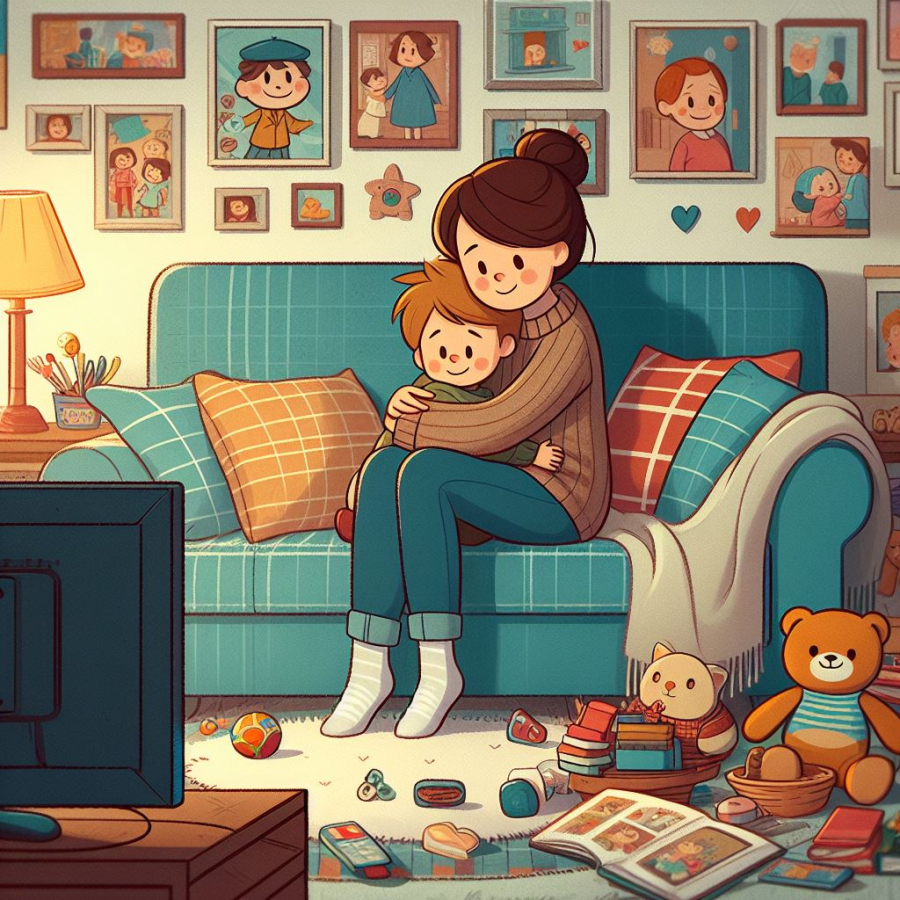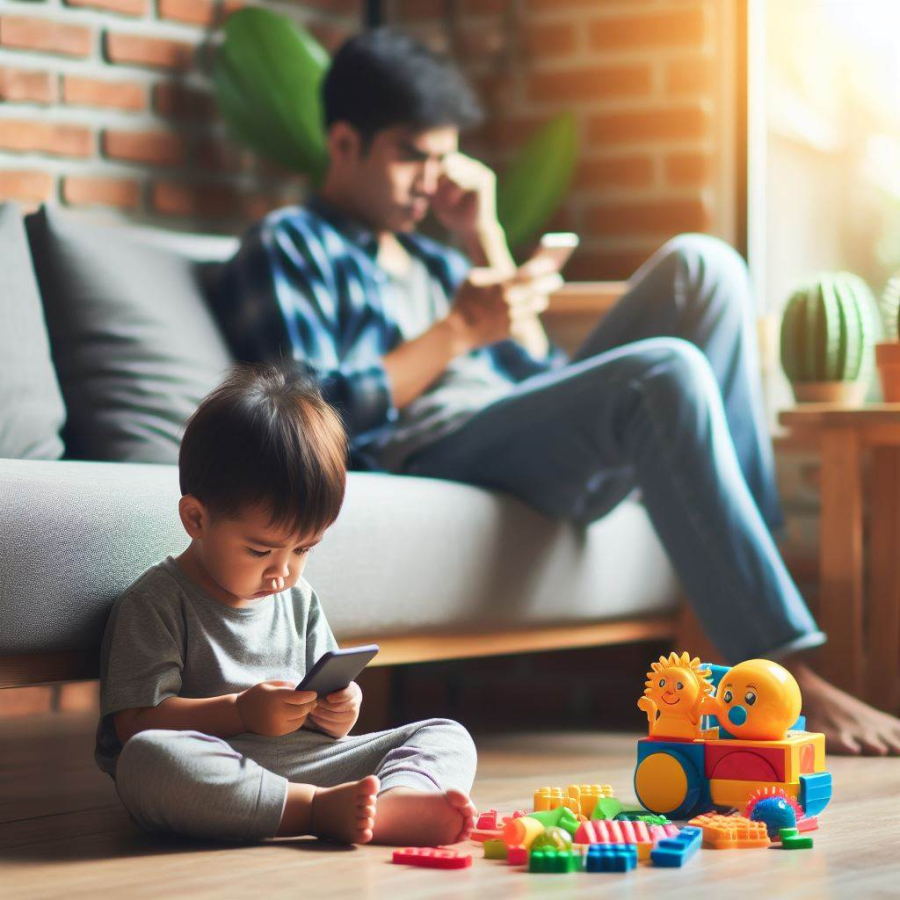Dad Addicted to Phone
The dependency on mobile phones by a father can have unforeseen consequences on the upbringing and well-being of young children. Excessive focus on the mobile screen reduces the quantity and quality of interaction with children, leading to a lack of emotional presence and a strong bond between father and child.
Children can perceive the absence and lack of comprehensive attention, which can reduce self-esteem and affect their ability to form trustworthy relationships in the future. Furthermore, the behavior patterns of phone dependency exhibited by parents can be imitated by children, leading to early electronic device abuse.
This not only impairs the physical and cognitive development of children but also affects their attention and academic achievements. Lack of face-to-face communication and eye contact hinders the development of social and communication skills. To minimize these negative impacts, fathers need to have a deep awareness of their phone usage habits and make an effort to achieve a balance between being online and spending quality time with their families.

Lack of face-to-face communication and eye contact hinders the development of social and communication skills
Dad Rarely Comes Home
When fathers are frequently absent from home due to work or business travels, it may be understandable under certain circumstances. These periods of absence can be compensated for at other times when the father is present. However, the problem arises when, after work hours, many fathers choose not to return home and instead spend time at bars or restaurants.
This continuous absence can lead to conflicts and arguments between spouses, negatively affecting the child’s mental well-being. It can cause children to develop anxiety, fear, or even aggressive tendencies as they grow up.
Psychological experts point out that if a mother influences a child’s future habits, the image of the father strongly influences their character as they grow up. Fathers who show a lack of concern and neglect their responsibilities towards their families can have long-term consequences on their children. These children have a higher risk of becoming irresponsible and untrustworthy adults who do not uphold their promises.

If a mother influences a child’s future habits, the image of the father strongly influences their character as they grow up
Dad Doesn’t Play with Children
If fathers do not spend time playing with their children, it can negatively impact the overall development of the child. Playtime not only helps children learn and develop life skills but also lays the foundation for a strong bond between the child and parents.
The absence of playful moments with the father can make the child feel abandoned and lonely, which can negatively affect their self-esteem and emotional well-being. Young children need interaction and recognition from both parents to thrive; without this, they may experience behavioral and social interaction issues.
Furthermore, not playing with the child means missing valuable opportunities to teach them about rules, teamwork spirit, and the importance of sharing through play. To minimize these negative effects, fathers need to actively seek and dedicate meaningful time to play and interact with their children, not only showing affection but also contributing to their holistic development.

Not playing with the child means missing valuable opportunities to teach them about rules
Dad ‘Delegates’ Parenting to Mom
In today’s society, despite progress in gender equality, the notion that the primary responsibility of caring for and educating children belongs to women still exists. When fathers do not share this burden and consider it solely the duty of their partners, it not only creates unnecessary pressure on mothers but can also set unhealthy examples for the child’s development.
Mothers, when having to single-handedly fulfill most of the parenting tasks, can become overwhelmed, leading to health risks and insufficient attention to their children. This can result in children not receiving the necessary care in terms of mental and physical well-being. From a psychological perspective, if a girl grows up noticing her mother’s habits, the image of her father can strongly influence her character. On the other hand, if a boy grows up in such circumstances, he may become a selfish and unsympathetic man, lacking the ability to share.
Therefore, the fair sharing of child-rearing responsibilities between parents is crucial to ensure that both have a positive and balanced impact on the child’s development.

The fair sharing of child-rearing responsibilities between parents is crucial
Dad Has a Bad Temper, Constantly Arguing with Relatives
The frequent anger and habit of constant arguments with family members by the father can create a living environment filled with pressure and instability. This causes negative impacts on the mood and development process of young children. Children living in such conditions often feel insecure and afraid as they are constantly exposed to conflicts and lack the essential serenity for healthy growth.
This continuous tension can also affect a child’s ability to learn and focus, reducing their academic performance and inhibiting the development of social skills. Additionally, the observed conflict patterns can become models for children to imitate, leading them to solve conflicts by expressing anger and arguments, affecting future relationships with friends and others.
To minimize these undesired impacts, fathers need to be self-aware and adjust their behavior, seeking reasonable conflict resolution methods and creating a loving and supportive family space that contributes to the holistic development of their children.
Learning Tips for Parents: 12 Japanese Techniques to Use with Your Children
Discover the 12 principles of teaching children in the traditional Japanese way that parents can learn with Dien May XANH! By instilling these principles when your children are young, you can ensure that they grow up to be obedient, smart and polite, the hallmarks of a successful education in Japan.
“Creating Lasting Memories: 10 Tips for Strengthening the Father-Child Bond”
Are you looking for effective ways to create a strong and close relationship with your child? If so, this article is for you! Find out 10 creative ways to nurture the father-child bond and make the relationship between you and your child more meaningful. These simple tips can help you create a special bond with your child and build strong emotional ties.
Mothers’ Need for Awareness of Dual Activity of Breastfeeding and Watching TV
In the contemporary world, in which technology pervades our lives, some mothers tend to soothe their babies through nursing while simultaneously watching television. Although this practice may not appear to affect the infant, studies show that it can in fact have dire repercussions on the baby’s well-being, both in terms of physical health and mental growth. In this article, we will look at the possible reasons for this activity and its potential outcomes.





































